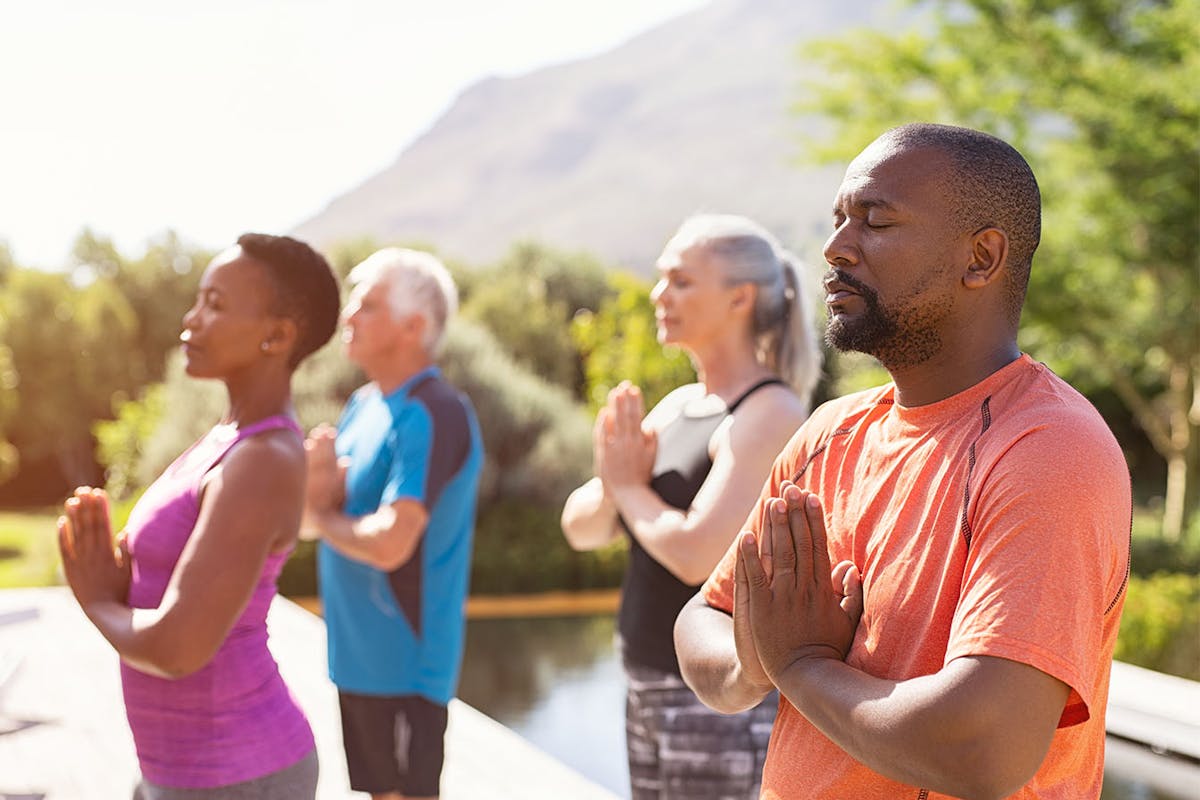Natural Remedies for Maintaining Mental Health

It’s been a tumultuous year so far on many fronts, including worries about the COVID-19 outbreak. For seniors, the risk of contracting the virus is higher than for younger people. Fear about it can create or exacerbate anxiety. If you find yourself struggling with stress and feeling anxious, it might be time to explore ways to manage your responses.
While there are pharmacological solutions that may help, your physician will likely encourage you to start with some natural remedies first. Here are a few to explore.
6 Ways to Calm Anxiety and Nurture the Spirit
1. Create a gratitude journal:
When you are going through a difficult time and feeling overwhelmed by issues out of your control, it’s easy to focus on the negatives. Most of the time, there are small things to be grateful for every day. You can help your mind focus on those by creating a simple gratitude journal. List 5 or 6 things that happened during the day, no matter how small, that you are grateful for: A bird singing outside your kitchen window. Finding a parking spot close to your doctor’s office when you aren’t feeling well. As time goes by, you will find yourself looking for things to be grateful for throughout the day.
2. Practice meditation:
While this might take a little time to master, meditation has proven health benefits, including reducing anxiety and beating stress. Meditating on a routine basis helps you be more mindful and present. That can aid in calming the mind. Experts say it’s usually best to meditate first thing in the morning. If you are a beginner, you might find it helpful to take a virtual class to learn how to master the basics. Udemy and Headspace both have free options to get you started.
3. Take a nature stroll:
Sunshine, nature, and physical activity are a winning combination for boosting mental health. Setting a goal to walk every day, whether it’s in your own neighborhood or at a local park, can be a great way to help you find peace. If you haven’t exercised in a while, it might be a good idea to check with your doctor first for advice on how far and at what intensity you should walk.
4. Enjoy time out for yoga:
This activity nurtures the body, mind, and spirit. It’s good for improving core strength, an essential factor for guarding against falls, as well as learning better breathing techniques. Deep, thoughtful breaths are great stress-busters. If you aren’t able to get down on the floor, chair yoga can be just as effective. YouTube has a variety of free videos you can watch to master chair yoga.
5. Dig in the dirt:
Gardening offers many therapeutic benefits, as well as the rewards of growing your own flowers and vegetables. Fortunately, you can create a garden on even a small patio or porch. If you haven’t gardened before, Container Gardening Tips for Older Adults offers advice you will find useful.
6. Limit screen time:
Whether it’s nonstop cable news or the political disputes that pop up so often on social media, indulging in too much screen time can be bad for your mental health. Since it usually involves sitting, there’s also the negative impact of a sedentary lifestyle to consider. Try to limit your screen time, and commit to sticking with positive shows and sites.
Our final suggestion is to be honest and open with your primary care doctor if efforts to manage your anxiety fail. They will have other treatments to consider, at least on a short-term basis.
Peace of Mind with an Emergency Alert System
If you find yourself worrying about falling or experiencing an emergency when you are home alone, a medical alert system might be the solution. A mobile monitoring unit will allow you to summon help with the push of a button. Call 1-844-203-5617 to learn more today!